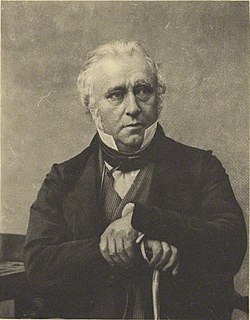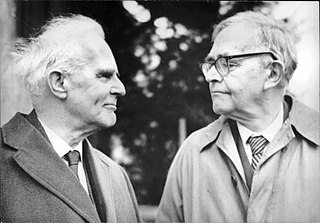A Quote by Alan Lightman
It's the Platonic philosophy in The Republic that philosophers should lead the country.
Related Quotes
The traditional disputes of philosophers are, for the most part, as unwarranted as they are unfruitful. The surest way to end them is to establish beyond question what should be the purpose and method of a philosophical enquiry. And this is by no means so difficult a task as the history of philosophy would lead one to suppose. For if there are any questions which science leaves it to philosophy to answer, a straightforward process of elimination must lead to their discovery.
I am not sure just what Marx had in mind when he wrote that "philosophers have hitherto only interpreted the world in various ways; the point is to change it." Did he mean that philosophy could change the world, or that philosophers should turn to the higher priority of changing the world? If the former, then he presumably meant philosophy in a broad sense of the term, including analysis of the social order and ideas about why it should be changed, and how. In that broad sense, philosophy can play a role, indeed an essential role, in changing the world.
Socrates: So even our walks are dangerous here. But you seem to have avoided the most dangerous thing of all. Bertha: What's that? Socrates: Philosophy. Bertha: Oh, we have philosophers here. Socrates: Where are they? Bertha: In the philosophy department. Socrates: Philosophy is not department. Bertha: Well, we have philosophers. Socrates: Are they dangerous? Bertha: Of course not. Socrates: Then they are not true philosophers.
Philosophy used to be a field that had content, but then natural philosophy became physics, and physics has only continued to make inroads. Every time theres a leap in physics, it encroaches on these areas that philosophers have carefully sequestered away to themselves, and so then you have this natural resentment on the part of philosophers.
Philosophy used to be a field that had content, but then 'natural philosophy' became physics, and physics has only continued to make inroads. Every time there's a leap in physics, it encroaches on these areas that philosophers have carefully sequestered away to themselves, and so then you have this natural resentment on the part of philosophers.
The men who are not interested in philosophy need it most urgently: they are most helplessly in its power. The men who are not interested in philosophy absorb its principles from the cultural atmosphere around them-from schools, colleges, books, magazines, newspapers, movies, television, etc. Who sets the tone of a culture? A small handful of men: the philosophers. Others follow their lead, either by conviction or by default.
The kind of approach I take is different from much of experimental philosophy. Although the experimental philosophers and I are certainly in agreement about the relevance of empirical work to philosophy, a good deal of their work is devoted to understanding features of our folk concepts, and in this respect, at least, I see them as making the same mistake as those armchair philosophers who are interested in conceptual analysis.
For the Platonic or Aristotelian philosophy, it is of no importance whether Plato or Aristotle ever lived. For the mystical practice of an Indian, Persian, Chinese, or Neo-Platonic mystic it is a matter of indifference whether Rama, Buddha, Laotse, or Porphyrius are myths or not. The mystic has no personal relation to them. It is not here a question of somebody telling me the truth which of myself I cannot find, but of my finding an access to the depths of the world in the depths of my soul.



































